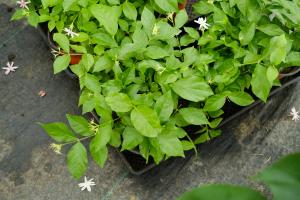Which Plant or Tree Produces the Most Protein?
Protein is an essential nutrient that is required by the human body for growth, repair, and maintenance. It is a macronutrient that is made up of amino acids and is found in various food sources such as meat, fish, dairy products, grains, legumes, and vegetables. In recent years, there has been an increased focus on plant-based diets due to the environmental and health benefits they offer. As a result, many people are interested in knowing which plant or tree produces the most protein. This article aims to answer that question.
Soybeans
Soybeans are one of the most popular sources of plant-based protein. They are rich in protein and contain all the essential amino acids required by the human body. According to studies, soybeans contain 36g of protein per 100g.
In addition to being high in protein, soybeans are also a rich source of other nutrients such as fiber, vitamins, and minerals. They are also known to have antioxidant properties that help to protect the body against free radicals.
Spirulina
Spirulina is a type of blue-green algae that is grown in fresh or saltwater algae farms. It has been recognized as one of the most nutrient-dense foods on the planet and is known to have a high protein content.
According to research, spirulina contains 60-70% protein by weight, which is higher than most plant-based protein sources. It is also a rich source of other nutrients such as vitamins, minerals, and antioxidants.
Chlorella
Chlorella is a type of green algae that is grown in fresh water. It is a popular supplement that is known for its detoxifying properties and is also a great source of plant-based protein.
According to research, chlorella contains 53g of protein per 100g, making it one of the most protein-rich plant sources. It is also a rich source of other nutrients such as vitamins, minerals, and antioxidants.
Hemp Seeds
Hemp seeds are the seeds of the hemp plant and are a great source of plant-based protein. They are also rich in essential fatty acids, which are important for brain health and reducing inflammation in the body.
According to studies, hemp seeds contain 31g of protein per 100g, which is higher than most plant-based protein sources. They are also a rich source of other nutrients such as fiber, vitamins, and minerals.
Peanuts
Peanuts are a popular food that is high in protein and can be enjoyed in various forms such as boiled, roasted, or ground into peanut butter.
According to research, peanuts contain 25g of protein per 100g. They are also a rich source of other nutrients such as fiber, vitamins, and minerals.
Conclusion
In conclusion, there are various plant-based sources of protein, and the most protein-rich ones are soybeans, spirulina, chlorella, hemp seeds, and peanuts. Incorporating these foods into your diet can help you meet your daily protein requirements and also provide you with other essential nutrients that are required by the body. It is important to note that a varied and balanced diet is essential for overall health and wellbeing.

 how many times do yo...
how many times do yo... how many planted tre...
how many planted tre... how many pine trees ...
how many pine trees ... how many pecan trees...
how many pecan trees... how many plants comp...
how many plants comp... how many plants can ...
how many plants can ... how many plants and ...
how many plants and ... how many pepper plan...
how many pepper plan...

































